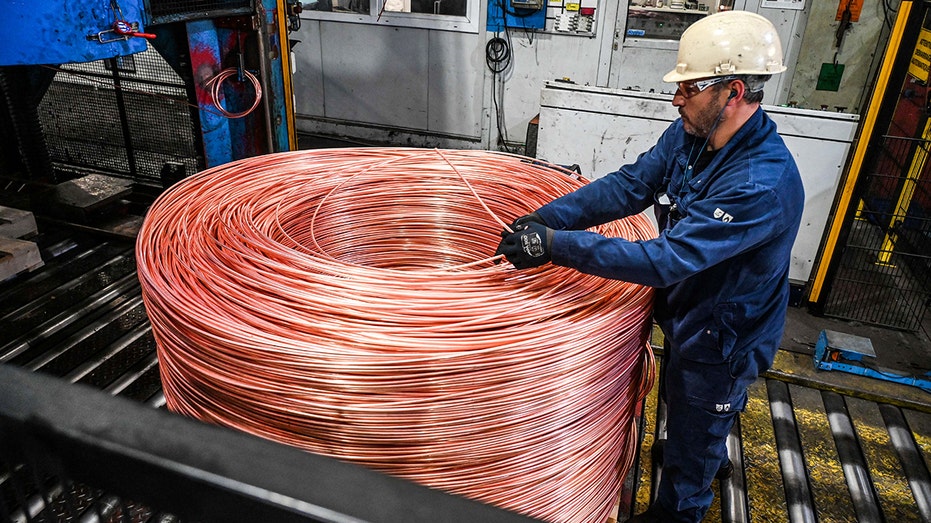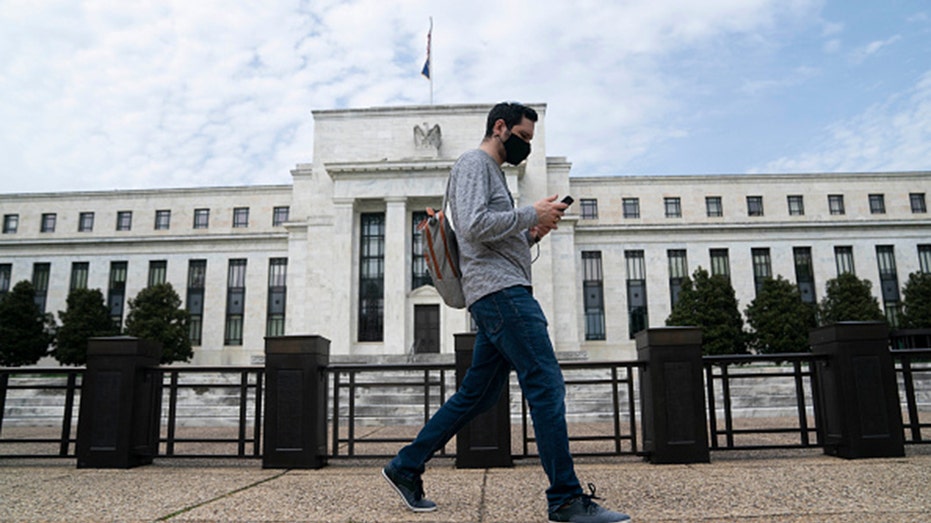Copper prices sink, flashing another recession warning
Copper bear markets have preceded every recession over past 30 years
Dr. Copper is volatile, but in huge demand: Market expert
Villere Balanced Fund portfolio manager George Young explains why he is bullish on copper on 'The Claman Countdown.'
Copper suffered its worst weekly plunge since the early days of the COVID-19 pandemic, flashing the latest warning sign that a recession could be looming on the horizon.
The metal — a major component in electronics and motors that is often used as a bellwether of economic well-being — fell as low as $6,953 a ton of the London Metal Exchange on Friday. The commodity recovered later in the day as part of a broader market rally, with the three-month price rising above $7,170.
Still, copper posted its largest one-week percentage decline since late March 2020, at the height of pandemic-related shutdowns in the economy. The metal has fallen about 35% over the past four months, wiping out gains earned in the wake of the Russian war in Ukraine. Year-to-date, copper is down about 28%.
Copper officially entered a bear market at the end of June — an occurrence that has preceded each and every recession over the past 30 years.
INFLATION TIMELINE: MAPPING THE BIDEN ADMIN'S RESPONSE TO RAPID PRICE GROWTH

An employee monitors the 8mm diameter copper cable which is rolled up before passing through a rolling mill to become cable at the Nexans manufacture in Lens, northern France, on May 11, 2022. ((Photo by DENIS CHARLET/AFP via Getty Images) / Getty Images)
The decline comes amid growing concerns that out-of-control inflation could force the Federal Reserve to hike interest rates so much that it triggers a recession.
Fed policymakers in June approved a 75-basis point interest rate hike — the first since 1994 — pushing the federal funds target range to 1.5%-1.75%. Another hike of that magnitude is on the table in July amid signs of stubbornly high inflation, Chairman Jerome Powell told reporters after the meeting, prompting investors to reassess the economic outlook.
Investors lifted their expectations of an even bigger, 100-basis point rate hike following the scorching-hot Labor Department report released Wednesday, which showed the consumer price index rose 9.1% in June from a year ago, exceeding market expectations. It marks the fastest pace of inflation since December 1981. Wall Street is now penciling in a 30% chance of a mega-sized rate hike at the Fed's July 26-27 meeting, according to the CME Group's FedWatch tool.

A man wearing a mask walks past the U.S. Federal Reserve building in Washington, D.C., on April 29, 2020. ((Xinhua/Liu Jie via Getty Images) / Getty Images)
Hiking interest rates tends to create higher rates on consumer and business loans, which slows the economy by forcing employers to cut back on spending. Mortgage rates are already approaching 6%, the highest since 2008, while some credit card issuers have ratcheted up their rates to 20%.
"Everything is in play," Atlanta Fed President Raphael Bostic told reporters in St. Petersburg, Florida, on Wednesday following the latest inflation data. Asked whether that included a full percentage point interest rate hike, Bostic said: "It would mean everything."





















